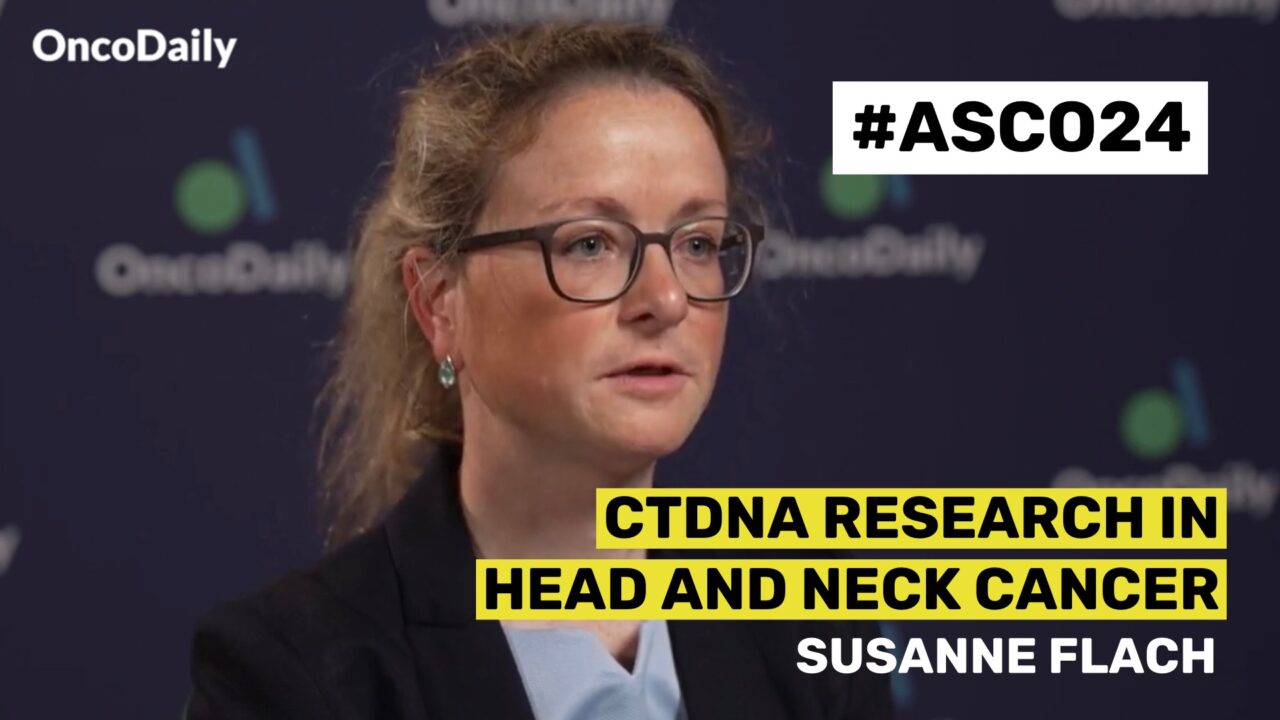
ASCO24 Updates: Dr. Susanne Flach on ctDNA Research in Head and Neck Cancer
The American Society of Clinical Oncology (ASCO) Annual Meeting is one of the largest and most prestigious conferences in the field of oncology. This year, the meeting took place from May 31 to June 4 in Chicago, Illinois. The event gathers oncologists, researchers, and healthcare professionals from around the world to discuss the latest advancements in cancer research, treatment, and patient care. Keynote sessions, research presentations, and panel discussions are typically part of the agenda, providing attendees with valuable insights into emerging trends and innovations in oncology.
This year, OncoDaily was at ASCO 2024 for the first time covering the meeting on-site. We had the pleasure of interviewing researchers who summarized the highlights of their work.
In this video, Dr. Susanne Flach, a trainee in ear, nose, and throat surgery at LMU Hospital in Munich, shares insights on ‘Personalized cell-free tumor DNA analysis for patients with HNSCC: Liquid biopsy for minimal residual disease detection in head and neck squamous cell carcinoma (LIONESS).‘
Hello everyone. My name is Susanne Flach. I’m a trainee in ear, nose and throat surgery, head and neck surgery at the Department of Otorhinolaryngology and head and neck surgery at the LMU Hospital in Munich, Germany.
Myself and my group, we are interested in head and neck squamous cell carcinoma. We’ve been conducting a prospective monocentric clinical study called the Lioness study for the past four years, which is a study on patients with head and neck squamous cell carcinoma, stages 1 to 4b, who received surgery with curative intent at our institution. We’ve been collecting blood and saliva samples pre and post-operatively and during clinical follow-up, and we’ve been analyzing those samples for the presence of circulating cell-free tumor DNA, which is cellular fraction in the plasma originating from the tumor.
The aims of our study were to evaluate ctDNA as a biomarker for surgical tumor clearance post-operatively and as a biomarker for a molecular level recurrence during follow-up. We enrolled 76 patients in our study and we’ve extracted tumor DNA from the resected specimen, conducted whole exome sequencing and designed personalized ctDNA assays to detect ctDNA during clinic follow-up and post-operatively.
Overall, we had a very good baseline ctDNA detection rate in 87% of plasma samples and 82% of saliva samples, and when analyzing ctDNA in plasma and or saliva, we could increase our detection rate to 93% pre-operatively.
Post-operatively, we were able to detect ctDNA in patients with a median lead time of 160 days prior to clinically confirmed recurrence, and that included patients where we were able to detect ctDNA immediately post-operatively, so detecting molecular residual disease.
Also in patients who did not receive adjuvant treatment, and those patients had an almost or pretty much a 100% risk of recurrence, and that shows the potential of ctDNA as a biomarker to potentially guide adjuvant treatment in that patient population, but also to potentially implement early therapies when there’s still a chance of cure prior, like when patients had a recurrence. So I think those are very promising results, and I think the implementation of ctDNA for detection of molecular residual disease and for detection of early recurrence in this patient cohort holds very high potential.
Thank you very much.
More videos and content from ASCO 2024 on OncoDaily.
-
Challenging the Status Quo in Colorectal Cancer 2024
December 6-8, 2024
-
ESMO 2024 Congress
September 13-17, 2024
-
ASCO Annual Meeting
May 30 - June 4, 2024
-
Yvonne Award 2024
May 31, 2024
-
OncoThon 2024, Online
Feb. 15, 2024
-
Global Summit on War & Cancer 2023, Online
Dec. 14-16, 2023
